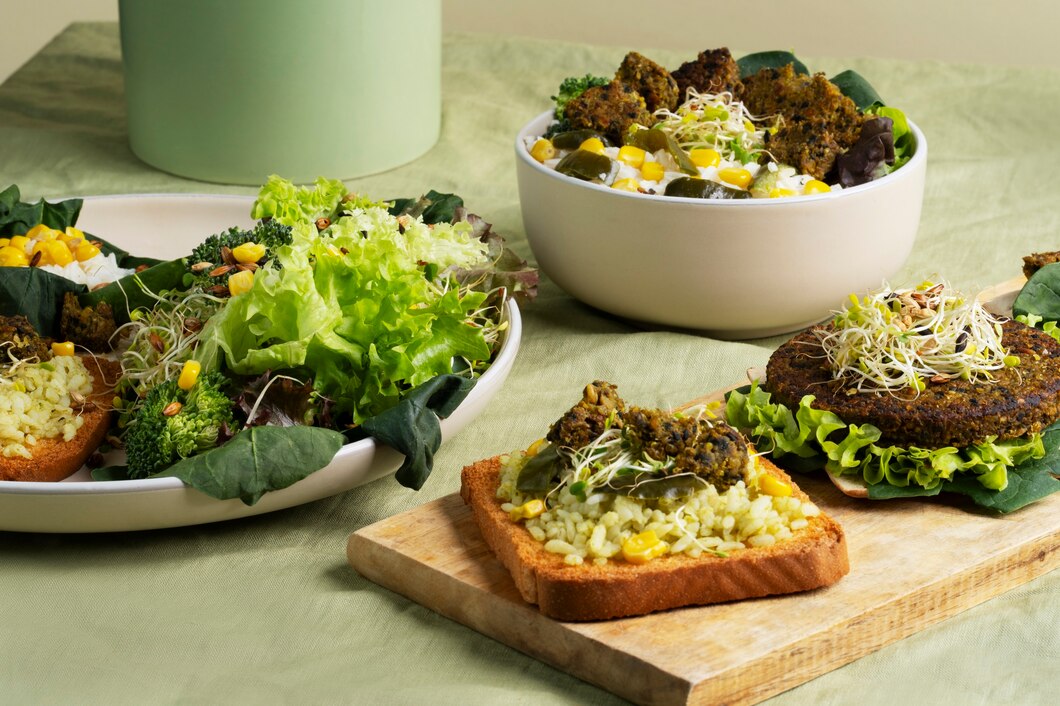Tofu is a staple in many vegan diets, but whether you’re allergic to soy, don’t enjoy its texture, or simply want to diversify your meals, there are plenty of protein-rich alternatives. Here are five great substitutes for tofu that can help you maintain a balanced and protein-packed vegan diet.
1. Tempeh
Tempeh is made from fermented soybeans, making it another soy-based product like tofu. However, its fermentation process gives it a distinct, nutty flavor and a firmer texture. Tempeh is packed with protein and probiotics, which are beneficial for gut health. It’s versatile and can be used in stir-fries, sandwiches, salads, or even grilled as a main dish.
Nutritional Benefits
- Protein: Approximately 15 grams per 100 grams
- Fiber: High in fiber due to whole soybeans
- Vitamins: Rich in B vitamins, particularly B12 due to fermentation
2. Seitan
Seitan, also known as wheat gluten, is a protein-rich food made from gluten, the main protein in wheat. It has a chewy texture and a savory flavor, often resembling meat more closely than tofu does. It’s an excellent choice for those looking to replicate meat dishes and can be used in a variety of recipes such as stews, stir-fries, and sandwiches.
Nutritional Benefits
- Protein: Approximately 25 grams per 100 grams
- Carbohydrates: Low in carbs, making it a popular choice for low-carb diets
- Iron: Good source of iron
3. Lentils
Lentils are a legume that offers a great plant-based protein source. They are highly versatile and can be used in soups, stews, salads, and even burgers. Lentils come in various colors, such as green, brown, and red, each with slightly different cooking times and textures.
Nutritional Benefits
- Protein: Approximately 9 grams per 100 grams (cooked)
- Fiber: High in fiber, promoting digestive health
- Folate: Rich in folate, important for cell growth
4. Chickpeas
Chickpeas, also known as garbanzo beans, are another excellent source of plant-based protein. They have a mild, nutty flavor and can be used in various dishes, from hummus and salads to curries and roasted snacks.
Nutritional Benefits
- Protein: Approximately 8 grams per 100 grams (cooked)
- Fiber: High in dietary fiber
- Micronutrients: Good source of iron, magnesium, and vitamin B6
5. Quinoa
Quinoa is a pseudo-cereal that is not only rich in protein but also a complete protein, meaning it contains all nine essential amino acids. Its fluffy texture and mild flavor make it a versatile addition to salads, bowls, and even breakfast dishes.
Nutritional Benefits
- Protein: Approximately 4 grams per 100 grams (cooked)
- Amino Acids: Complete protein profile
- Minerals: High in magnesium, iron, and manganese
While tofu is a popular protein source in vegan diets, there are numerous alternatives that can provide the necessary protein and variety to your meals. Tempeh, seitan, lentils, chickpeas, and quinoa each bring unique flavors and textures, ensuring that your vegan meals remain diverse, nutritious, and satisfying. Whether you’re seeking to avoid soy or simply want to mix up your meals, these options offer delicious and healthful ways to enjoy a protein-rich vegan diet.








